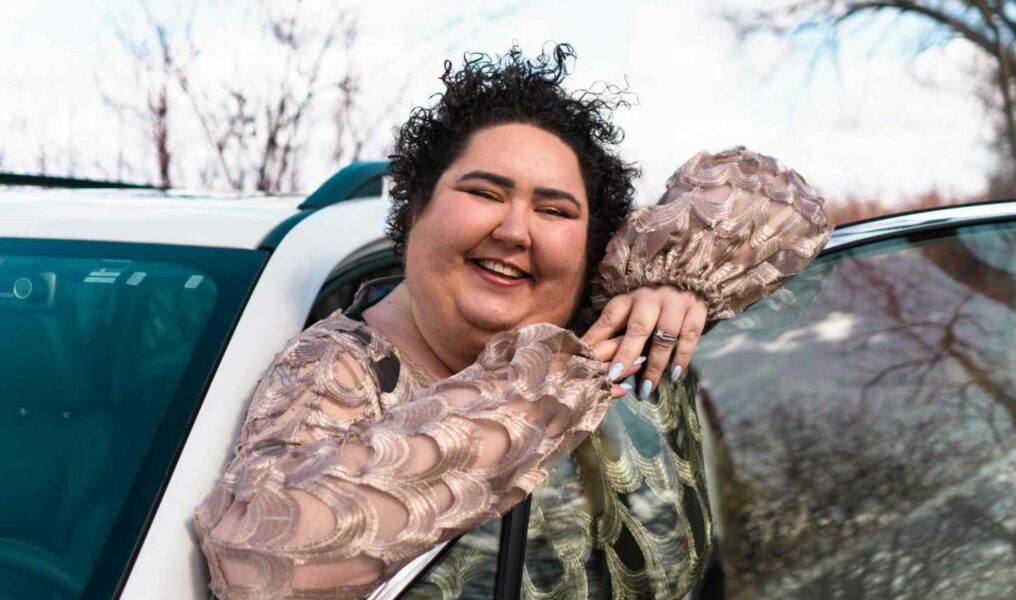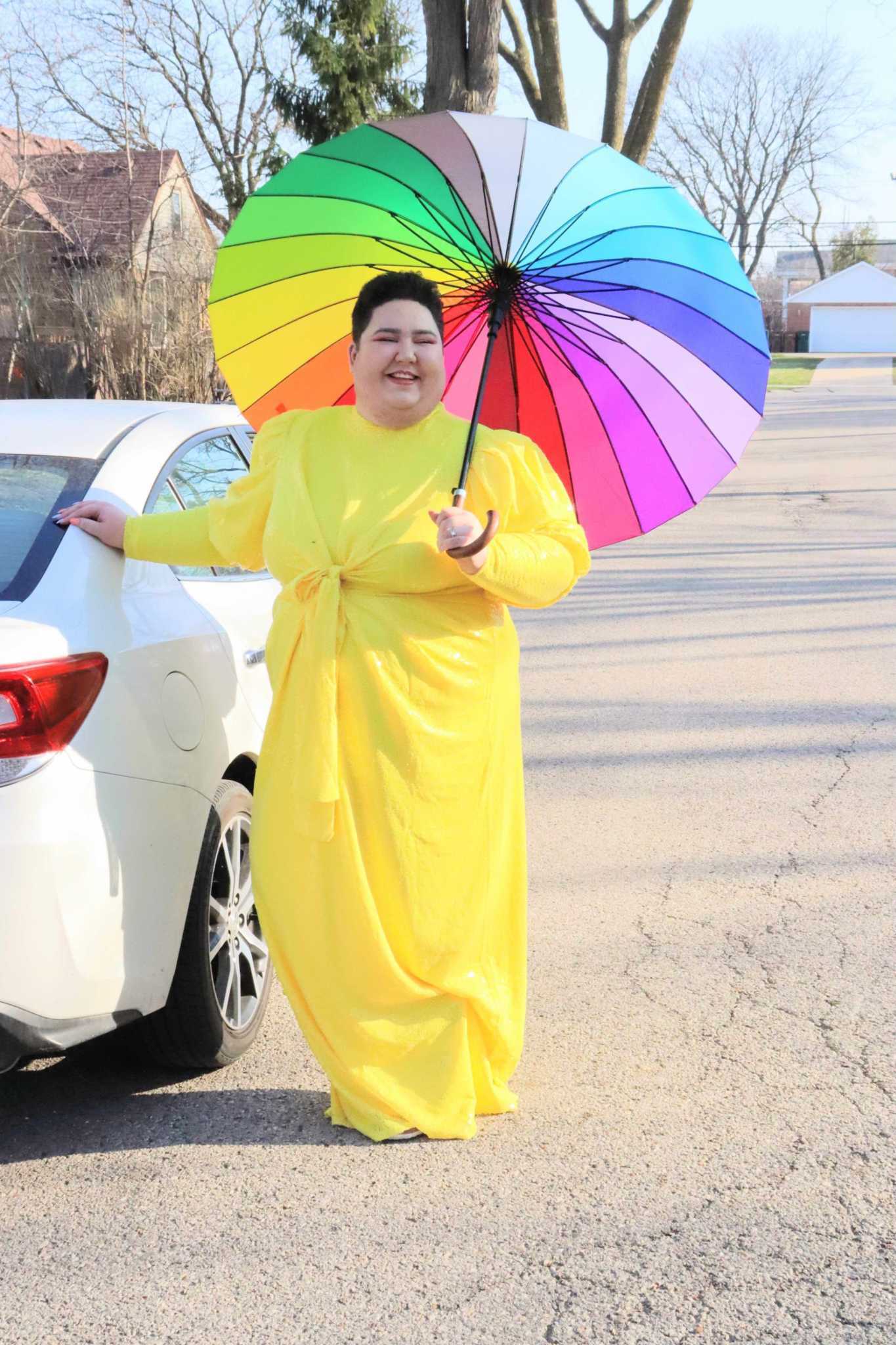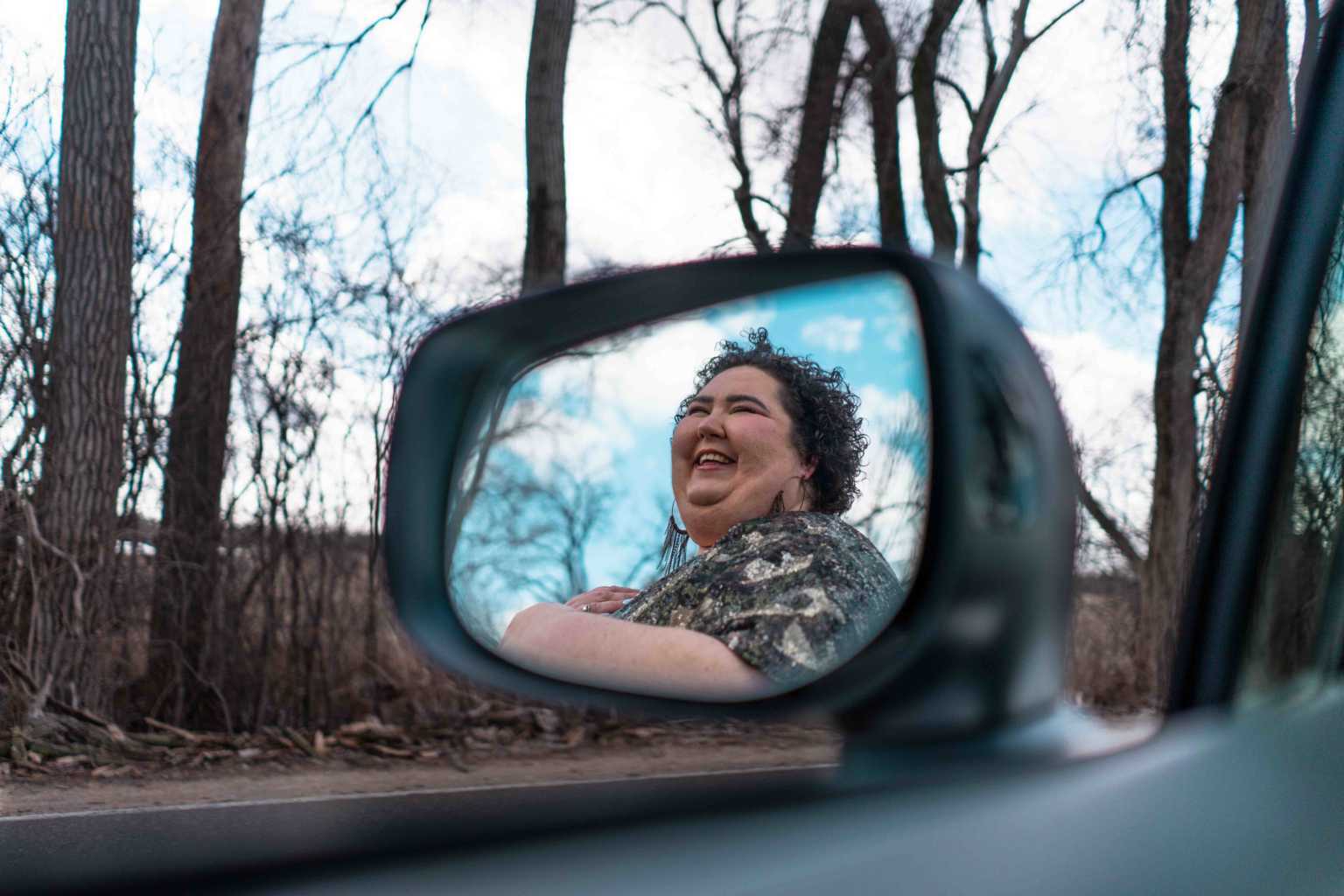How This Proudly Plus-Size Woman Is Leaving a Queer Mark on Male-Dominated Auto Industry
Chaya Milchtein is on a mission to empower queer car owners everywhere

Chaya Milchtein, aka Mechanic Shop Femme, is just as comfortable talking about lubricating cars as she is talking about lubricating sex toys. The automotive educator, journalist and empowerment speaker uses her platform to teach folks about car ownership and maintenance — all while showcasing plus-size fashion and blogging on subjects as varied as finding an honest mechanic, visiting Mexico with her wife and why masturbating isn't a dirty word.
If Milchtein’s platform sounds unique, that’s probably because it is. Milchtein, who is queer, said she wanted to meet a specific need: making automotive topics like buying a used car accessible to people who have traditionally felt shut out, specifically queer people and women. Milchtein finds some spaces that focus specifically on women “pink washed” and not the right fit for Milchtein or the community she wants to serve.
“The way that I built Mechanic Shop Femme,” Milchtein tells Pride Source, “was designed to serve queer people first, women second, and to still create a space where everyone else was welcome as long as they understood the community that they were entering when they were participating in my classes or my social media, [and that] they were able to remain respectful.”

Milchtein, who is based in Wisconsin, said she wasn’t interested in creating yet another channel designed for people who want to fix their own cars. Instead, her virtual classes for individuals and workshops for groups include topics like “The Why’s and When’s of Car Maintenance,” “How Does Car Insurance Actually Work?” and “Are All Mechanics Scammers?” Her workshops have been booked by libraries, nonprofits, educational institutions and businesses across the U.S. and Canada. She’s also available for phone appointments to answer auto-related questions, either a quick call or a 30-minute session.
A Google review from a student named Lucy is on par with other feedback she's been given: “I feel knowledgeable, confident and inspired to buy a used car. I also feel like I was not spoken down to and everything was explained without my having to ask basic questions. Chaya is truly the best at what she does.” Another reviewer, Siobhan, says, “I attended a Zoom presentation through our library. Chaya was amazing: interesting, understandable, friendly, very knowledgeable. She kept cars from being intimidating.”
“I think it's really important to me that people feel seen and people feel heard,” Milchtein says, “and people feel like they have found a place where they can ask questions without any kind of negative questions, without any disrespect.”
Mechanic Shop Femme’s unlikely origins begin with Milchtein’s birth into a Chassidic Jewish family, the eldest of 15 children. Abused by her father — a rabbi — Milchtein was removed from the home and placed in foster care at 16. As she aged out of the system, Milchtein was faced with finding a way to support herself.
Yet Milchtein’s background in politics — which includes training by the Victory Fund Institute and an internship with Fair Wisconsin — didn’t translate into the kind of job skills she would need to work at the fast food restaurant down the street. Perhaps because she was overqualified, Milchtein couldn’t get an interview anywhere. “I started a GoFundMe because I didn't really know what else to do,” she says.
Milchtein said she poured out her heart in what may have been her first essay. People responded positively. But the greatest help came in the form of a woman who noticed the campaign and asked Milchtein what she needed most. When Milchtein replied that she needed a job, the woman offered to connect her with the human resources department at Sears. That meeting went well.
“Toward the end of the interview, the HR manager asked me, ‘So, Chaya, what department do you want to work in?’,” Milchtein recalls. “In my very true Capricorn style, I was like, ‘Well, whichever department makes the most money.’” Of the two departments offered, appliances didn’t interest Milchtein. “Let’s try cars,” she said, and soon started work in the Sears automotive department. It wasn’t until shortly thereafter that Milchtein got her driver’s license.
“I fell in love with helping people,” Milchtein says. “I fell in love with being able to explain to people what their car needed. I always took great pride. And when people would spend a lot of money on repairs with me, they wouldn't leave with a bad taste in their mouth. They wouldn't leave confused about where that thousand went; they would leave my desk with an understanding of what their vehicle needed, why their vehicle needed it [and] how their money was being put to good use.”
Milchtein compared car knowledge with knowledge of another complex tool people use every day — the cell phone. “It is perfectly natural and normal for everybody to understand how the phone works and all the different functions and how it could be used in all different ways to benefit your life,” Milchtein says. With a phone, people generally receive instruction and learn along the way; they ask questions and can easily find answers.
With cars, it’s a different story. “When it comes to cars, there's this group of people, or rather this industry, that almost actively prevents in a way — or makes it incredibly uncomfortable and difficult for — people to be able to learn things about the vehicles that they use every single day,” she says. Milchtein is on a mission to end the kind of gatekeeping imposed by what she calls an inner circle or a “boys' club."

Milchtein also made a decision about how she presents herself in the work that she does: she’s not going to hide her plus-size body. “I wasn't going to hide myself in order to do the work that I'm doing,” Milchtein says. “I wasn't going to provide people with access to incredible education information in a respectful and kind space [if] they couldn't respect and honor my body, my community, my identity.
“I want myself to be seen,” she continues, “and that ties right into my love of bright clothing and fashion, and showing people that I'm not just a woman in the automotive industry — I am a fat woman in the automotive industry. I am a queer woman in the automotive industry. I am a Jewish woman in the automotive industry. Those are all intrinsically part of my identity.”
From authoring articles and creating videos for Real Simple to being featured in local and national media like AARP, the Chicago Tribune and Aljazeera, Milchtein has been recognized for her novel concept, her unique story and her relatability. She was named one of the Advocate's 2020 Women of the Year, alongside such luminaries as Rachel Maddow and Lizzo. And the story of her pandemic-era wedding (zero invited guests, viewed virtually by thousands) was featured in The New York Times’ Vows column.
Milchtein offers many of her services on a sliding scale, including her workshops for nonprofits. She also actively offers and gives scholarships to low-income people of color and people with disabilities.
As a brand, Mechanic Shop Femme is growing. Milchtein is working on a new course on electric vehicles and a gig with CarMax where she is creating educational content. She’s writing a book, too.
“I'm also really looking forward to being able to make a direct impact on the automotive industry itself,” Milchtein says, “instead of just the people that own cars. Working with brands and companies to help make the culture of their space more friendly and more welcoming and more inviting to women and queer folks in every position, both as employees and as consumers.
“Because if the space isn't safe and comfortable for women and queer employees,” she continues, “then likely it isn’t going to be a safe and comfortable and inviting environment for automotive consumers, either.”









